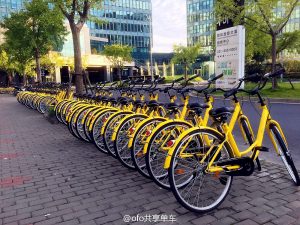Week 1 of the Digital Scholarship and Summer Research Fellows program has opened my eyes to the vast amount of information and tools out there available to us and once again reminded me of how much I don’t know. Besides gaining a better understanding of what Digital Scholarship is, this week has also helped me to narrow my research topic down to the increase in internet use in China.

When many of us think about internet use and access in China, the first thought that pops up is likely to be the restrictions that the Chinese government places on internet use and the inaccessibility of information that is deemed to be too sensitive for publishing. This impression of internet accessibility in China is not without reason, for China continues to block search engines like Google and social media sites like Facebook, Instagram and Twitter. However, what is less evident to people living outside of China is how the internet has drastically changed the country – business opportunities have swarmed towards e-commerce and online services, and people are becoming increasingly reliant on mobile phone apps like WeChat in their everyday lives.
On my last trip to B eijing recently, it was hard not to notice the rows of bright yellow bicycles lining roads everywhere. I then found out that these bicycles belong to a start-up company called ofo that created a bike-sharing system where people can simply go to their online app store and scan a QR code to unlock the bike at a minimal fee (charged by distance traveled). It has been an extremely successful project, and the company now owns over 3 million bikes across the country. This initiative could potentially drastically improve traffic conditions in the city in an efficient and environmentally friendly manner. Innovations like this one are constantly being introduced to people in the country, especially those living in cities like Beijing and Shanghai.
eijing recently, it was hard not to notice the rows of bright yellow bicycles lining roads everywhere. I then found out that these bicycles belong to a start-up company called ofo that created a bike-sharing system where people can simply go to their online app store and scan a QR code to unlock the bike at a minimal fee (charged by distance traveled). It has been an extremely successful project, and the company now owns over 3 million bikes across the country. This initiative could potentially drastically improve traffic conditions in the city in an efficient and environmentally friendly manner. Innovations like this one are constantly being introduced to people in the country, especially those living in cities like Beijing and Shanghai.
I am intrigued by the extraordinary change s that have taken place in China over past decades and especially that past few years that were brought about by increased internet use. Hence, my project will focus on the economic and social impacts of China’s internet wave on different regions in the country. I hope that through this project, I will be able to better understand and map out the significant changes that have taken place over time. By first analyzing the differences in the speed of increase in Internet use in different cities or provinces, I will then examine the possible implications of these variations.
s that have taken place in China over past decades and especially that past few years that were brought about by increased internet use. Hence, my project will focus on the economic and social impacts of China’s internet wave on different regions in the country. I hope that through this project, I will be able to better understand and map out the significant changes that have taken place over time. By first analyzing the differences in the speed of increase in Internet use in different cities or provinces, I will then examine the possible implications of these variations.
The presentation of this information is of course also extremely important. This past week, I have had the chance to experiment with various digital tools that could be useful in the presentation of my findings and explore possible ways in which I can take my project. Storymap and Timeline JS especially stands out to me and perhaps will allow me to display the information I have in a clear and concise manner. In the weeks to come, I am excited to learn more about the digital tools out there available to us and also look further into my research topic to come up with new ideas and directions in which I can take my project.
Recent Comments